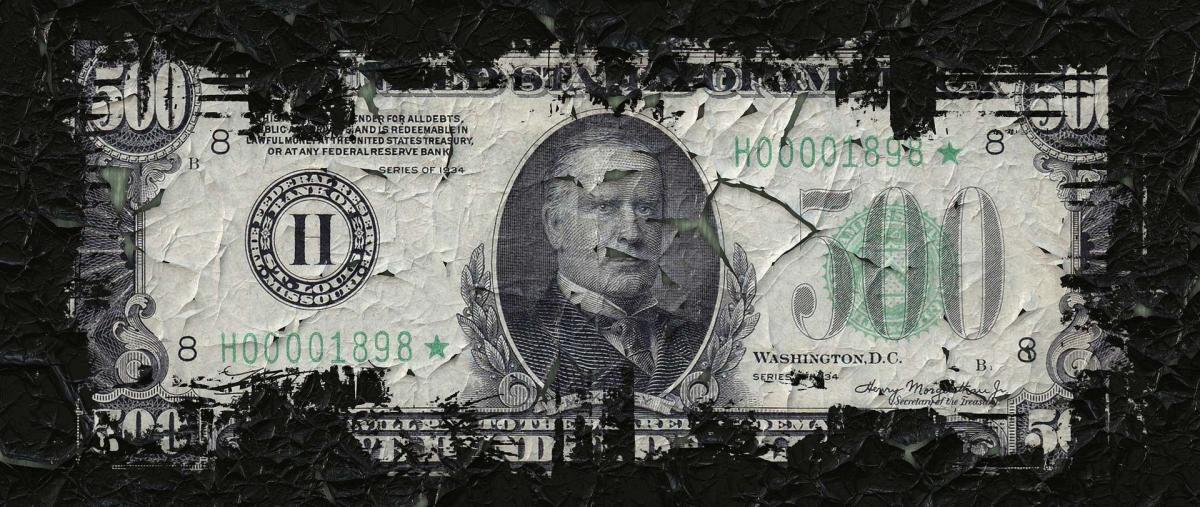The Federal Reserve has issued a final rule relating to the qualified financial contracts (QFCs) of global systemically important U.S. banking institutions (GSIBs).
Derivatives & Repo Report, a blog maintained by the international law firm Perkins Coie, has done a thorough write-up on the subject, to which the material below is indebted.
Too Big to Fail
The new rule is part of the body of responses to the crises of 2008, when the phrase “too big to fail” became a cliché. It tries to answer the question: how should the authorities’ best arrange for the resolution of a GSIB in crisis, so as to limit the contagion of that crisis?
The purpose of the new rule, more specifically, is to facilitate the orderly resolution of GSIB’s by limiting the ability of the counterparties who trade with one of them to terminate their contracts with it as soon as it enters a resolution regime. Some repo, derivatives, and securities lending agreements contain default and cross default rights, and the Fed rule would restrict them.
As noted above, only certain contracts (the “qualified” ones) are subject to the new rule and its restrictions. Default rights in non-qualified contracts are unaffected.
QFCs specifically do not include transactions with central clearing counterparties and financial market utilities; advisory contracts with retail advisory customers if the only transfer restrictions are those imposed by the Investment Advisors Act of 1940; warrants; or other contracts that the Fed may exempt on an ad hoc basis.
Dodd-Frank Act and Safe Harbors
The release announcing the new rule itself observes, “At the time of its failure, Lehman was party to very large volumes of financial contracts, including over-the-counter derivatives contracts. When its holding company declared bankruptcy, Lehman’s counterparties exercised their default rights.” This caused a rapid widespread unwinding of trading positions. Also, the associated complexity and disruption made the resolution of Lehman itself a disorderly process.
The Board of Governors of the Fed is issuing this final rule pursuant to section 165 of the Dodd-Frank Act, which instructs the Fed to impose enhanced prudential standards on bank holding companies with total consolidated assets of $50 billion or more in order “to prevent or mitigate risks to the financial stability of the United States that could arise from the material financial distress or failure, or ongoing activities, of large, interconnected financial institutions.”
The important fact about this final rule, for the alternative investments industry, is that it’s a prudential regulation that restricts the contractual rights of whoever might be counterparty (the buy side) of whichever GSIB turns out to be the next Lehman.
The rule applies not only to trades with the GSIB narrowly understood, but to trades with its subsidiaries. It also covers the U.S. operations of foreign based GSIBs, and their U.S. branches or subsidiaries.
The new rule (as it explicitly notes) does not affect a counterparty’s position under the U.S. Bankruptcy Code; that is, a counterparty to a covered entity, that finds that said covered entity is under the protection of the bankruptcy courts will not be able to exercise default or cross-default provisions in the manner of the good old days pre-crisis, but will be able to exercise default rights when authorized under the applicable bankruptcy law ‘safe harbors.’
Two Lists, and Final Thoughts
Thus far the list of recognized domestic GSIBs is as follows: Bank of America Corporation; The Bank of New York Mellon Corporation; Citigroup; Goldman Sachs; JPMorgan Chase & Co.; Morgan Stanley Inc.; State Street Corporation; Wells Fargo.
The list of foreign GSIBs is as follows: Agricultural Bank of China; Bank of China; BNPO Paribas; China Construction Bank; Credit Suisse; Deutsche Bank; Groupe BPCE; Group Credit Agricole; Industrial and Commercial Bank of China; HSBC: ING Bank; Mitsubishi UFJ; Mizuho; Nordea; Royal Bank of Scotland; Santander; Société Generalé, Standard Chartered, Sumitomo Mitsui; UBS; Unicredit Group.
There is an expectation that the OCC will soon issue a substantially identical rule that will apply to U.S. national banks, Federal savings associations, Federal branches, and Federal agencies.
One commenter on a draft of the new rule had expressed concern about default rights in overnight repos. The final rule declines to expressly exclude overnights, but the release contains language indicating that the rule does not apply to them on its face.




